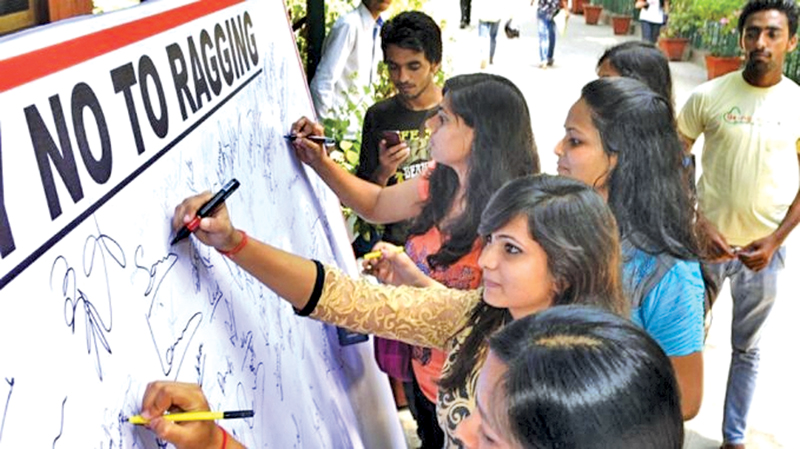The incident reported in the Daily News of September 3 that a group of “lawless” law student thugs had subjected the lady Principal of the Law College to the horrible experience of being held hostage for nearly 23 hours, is the latest expression of the longstanding malady of campus violence in Sri Lanka. It is a malady that is more commonly seen in the persistent culture of “ragging” (a misleading euphemism for the systematic torture of new entrants). In the case of this particular incident it is scandalous that there should be such contempt for the law amongst those who are aspiring to be the future lawyers and judges in this country!
As a former Dean of a Faculty, with a record of relentless hostility to such perversities I would like to reiterate the absolute imperative of charging the offenders under Sections 4, 5, and 6 of the “Prohibition of Ragging and Other Forms of Violence in Educational Institutions Act No 20 of 1998” where following conviction after summary trial - hostage taking and wrongful restraint are punishable with up to seven years rigorous imprisonment.
Higher education authorities
This Act No 20 of 1998 was enacted 20 long years ago. That followed the murder of an Engineering student Varapragash by fellow students who forced him to exercise violently until the poor boy died of kidney failure.
However it is a poor reflection on higher education authorities that seemingly no student has ever been charged and punished under the provisions of this Act since that time although the abomination of student violence, contempt for law and order, rampant indiscipline and the systematic torture of new entrants continues to rage in our campuses. It has been suggested that this might be partly because given the culture of fear in campuses victims of violence are terrified to testify in court against their oppressors.
However in the present case where a very senior lawyer who is the Principal of the Law College was taken hostage by student criminals whom she would obviously be in a position to identify – there should be no impediment whatsoever to rigorously enforcing the rule of law so that the offenders are both expelled from the Law College and after summary trial given the maximum punishment of seven years RI under the Anti Ragging Act of 1998. Indeed if there was any serious commitment to the rule of law in the country, this ought to be what they call an ‘open and shut case’!
Bureaucratic procedure
This is no time to follow dull bureaucratic procedure and passively await the reaction of the governing authorities of the Law College to this incident. To be sure as a general principle individual victims of lawlessness may sometimes possess a kind and gentle nature that is disposed to be tolerant and indulgent towards those who have harassed them personally. On the other hand where such individuals occupy public office it would not be right for them to allow such personal sentiments to conflict with their public duty to rigorously bring criminals to justice, whose violence in this instance is the latest expression of a degenerate culture of student violence, indiscipline, arrogant contempt for the rule of law, and the persistent torture of new entrants that has been the bane of our Universities for decades, taking a heavy toll on successive generations of students many of whose lives have been irrevocably scarred as a result.
In a lifetime of struggle against campus violence and torture I have often been disillusioned by the weakness and apathy of university authorities and academic staff in addressing the malady of student violence and indiscipline. I have no doubt that if there was sufficient ‘moral outrage’ in the academic community towards these evils they can be eliminated forthwith.
Any failure to prosecute the offenders in this latest incident with the full force of the 1998 Act and put them away, will be a further indication of the lack of such moral outrage, with the implication that a degenerate culture of violence and torture has now come to stay and will continue to be a permanent feature of higher education in Sri Lanka.



Add new comment